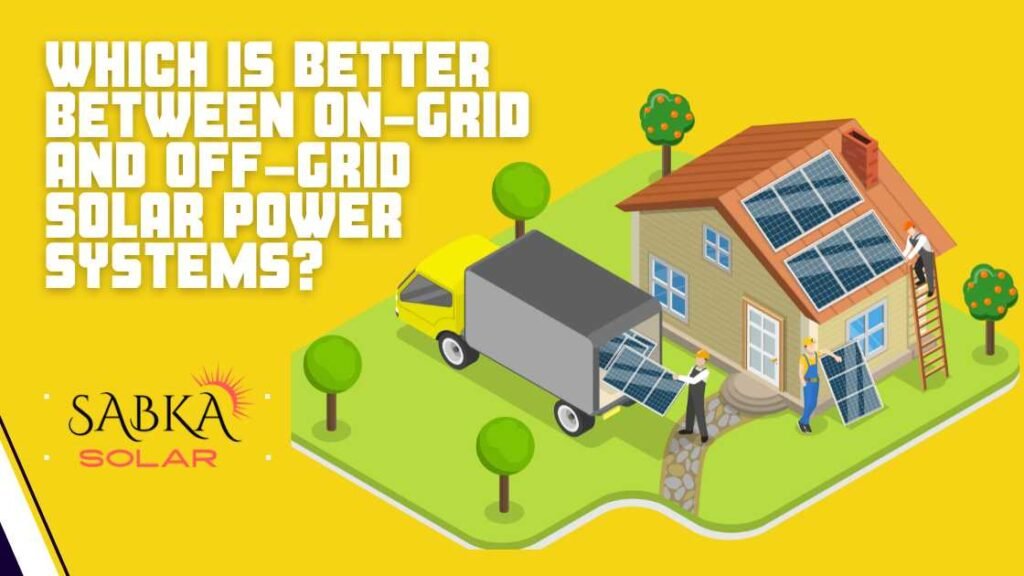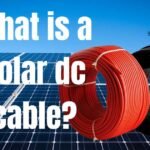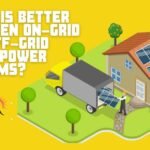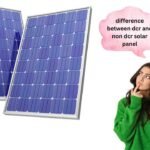Feeling Confused? Let’s Break It Down
Have you been stuck deciding between on-grid and off-grid solar power systems for your home or business? To help you choose wisely, let’s unravel the key differences between these solar setups.
Table of Contents
Understanding On-Grid and Off-Grid Solar power Systems
Let’s chat about solar power systems and how they work for your home or business. It’s a bit like choosing between going solo or being part of a team. One way is called “on-grid,” where your solar system buddies up with the regular electricity grid. The other way is “off-grid,” where your solar setup is like a lone ranger, doing its own thing without relying on the grid. So, it’s basically deciding if you want your solar system to be a team player or go solo. Now, let’s break down these two options and see which one suits you best!
Off-Grid Solar Energy System:
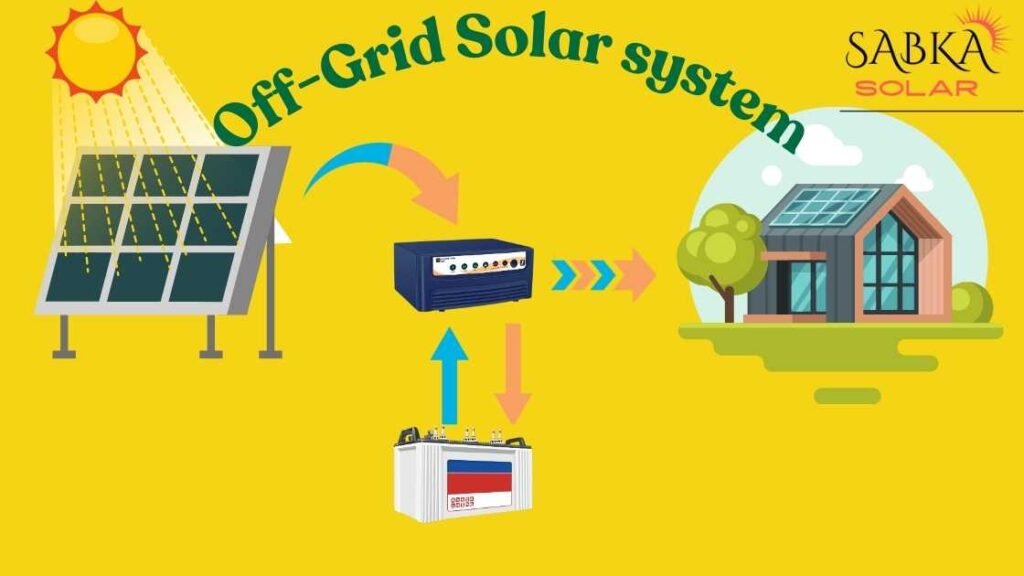
Imagine an off-grid solar system as a loner. It works independently, not hooked up to the regular power grid. It relies only on the sun and batteries for energy. Your access to electricity, extra equipment needs, what happens during grid issues, and how you get billed are all influenced by not being connected to the grid.
On-Grid Solar Energy System:

Now, picture an on-grid system as a social butterfly. It stays connected to the regular power grid. It ensures you always have electricity, even when the sun isn’t shining. Access, equipment needs, dealing with grid troubles, and how you get billed are all tied to being connected to the grid.
Understanding Differences in Electricity Access
Let’s talk about how you get electricity from solar power. Imagine your house or business using solar energy, but there are different ways to do it. One way is like being a superhero, all independent and not relying on anyone else. Another way is more like having a helpful neighbor, always there when you need a bit extra power. ” Now, let’s dive into the first part – how you actually get the electricity with these different systems.
Off-Grid Solar:
With off-grid systems, it’s like relying on your own stash of snacks. You get electricity when the sun’s out or from the stored battery energy. But when it’s cloudy or night, you might have less or no power if there aren’t enough batteries.
On-Grid Solar:
On-grid systems are like having a grocery store next door. You always have electricity, whether the solar panels are busy or not. If your system isn’t producing enough, you can grab some extra from the utility grid.
Managing Excess Production
Alright, let’s talk about having a little extra power from your solar system – like having more cookies than you need. We call it “Managing Excess Production.” It’s a bit like being a good chef who cooks more food than everyone can eat. Now, with solar, your system can produce more electricity than you use, especially during sunny times. So, what do you do with that extra power? It’s like deciding whether to save the extra cookies for later or share them with others. Let’s dig in and see how we can handle this extra electricity smartly.
Excess Production with Off-Grid Solar:
Off-grid systems can be like making more food than you need. They create extra electricity during the day, stored in batteries for later. But if the weather turns gloomy for days, you might run low on power unless you have enough batteries.
Over Production from On-Grid Solar:
On-grid systems are like sharing extra cookies. If your solar system produces more energy, you send it to the grid and get compensated. It’s like a reward system, especially in the United States and India through something called net metering.
Response to Grid Outages
Off-Grid Power Outages:
Picture an off-grid system as a superhero. It doesn’t rely on the grid, so it keeps going during storms or outages, providing you with electricity without any changes.
Power Outages in Grid-Tied Systems:
Now, think of on-grid systems like having a helper. You get electricity by being connected to the grid. But during grid issues, you might lose power unless you have a backup battery with your on-grid solar system.
Understanding Electricity Billing
Electricity Bills with an Off-Grid System:
If your solar system isn’t connected to the grid, it’s like not getting a grocery bill. But keep in mind, off-grid systems might be pricier due to needing extra stuff like batteries.
Power Bills with a Grid-Tied System:
Even though your solar system does all the work, you might still see small costs on your bill with on-grid systems. There’s usually a fixed fee (like a store entry fee), and sometimes extra charges during busy times, which can be managed with solar and batteries.
Conclusion: Balancing Pros and Cons
Deciding between on-grid and off-grid solar systems is like choosing between solo adventures and group outings. Off-grid is independent but might cost more. On-grid can save money, but you’re tied to the grid. SabkaSolar supports clean energy projects in India, whether you prefer going solo or sticking to the grid. They’ve got solutions for both!

